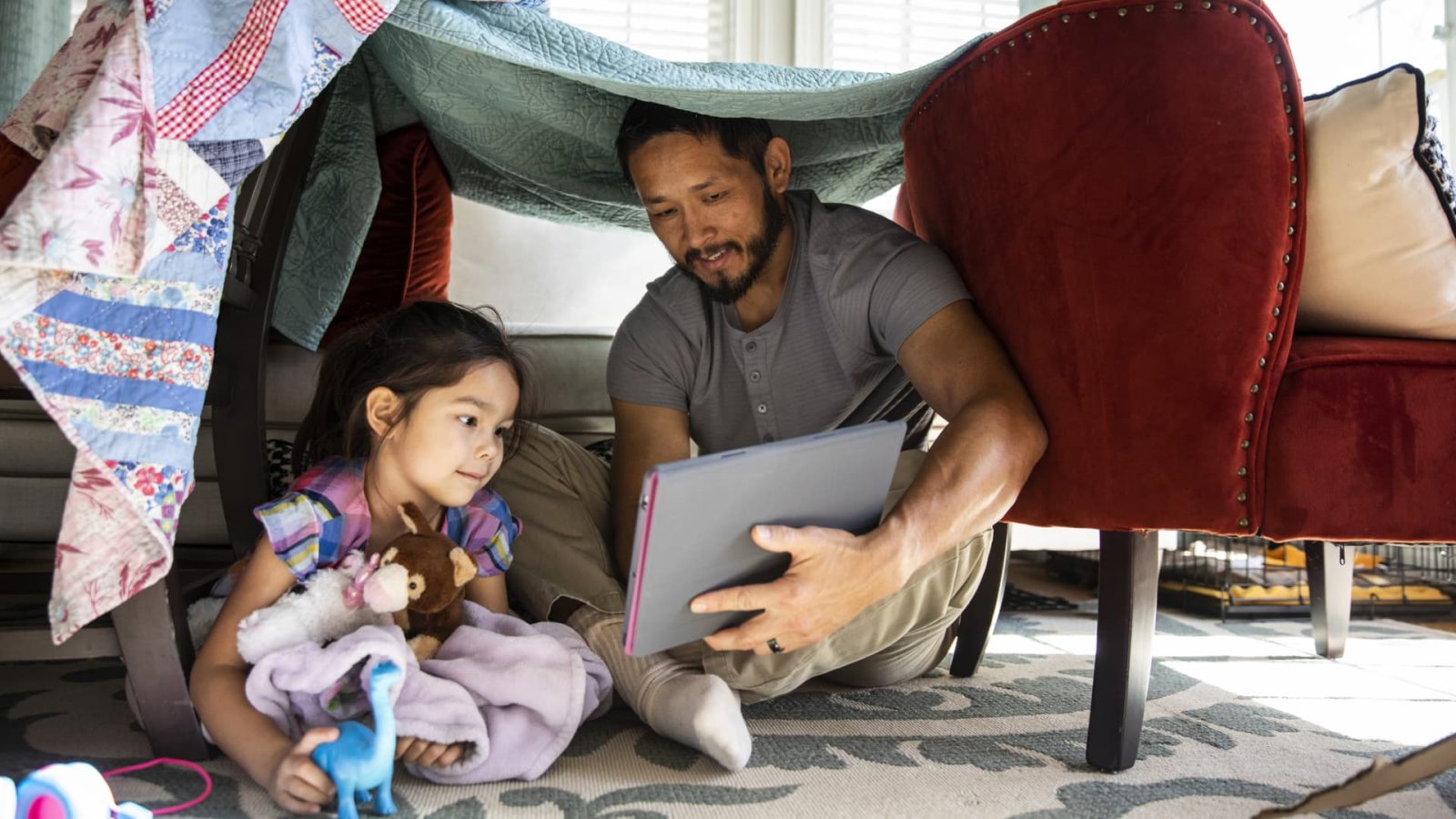Kids whose dads read, sing and draw with them may have an advantage once they start school, according to new research from the U.K.
“Fathers’ childcare involvement has a unique and important effect on the educational outcomes of children that is over and above the effect of the mothers’ involvement,” a report published by the University of Leeds found earlier this month.
The effect appears to stretch across a kids’ primary school years.
Those kids whose dads are often involved in “structured, educational activities,” for example, reading, have an advantage in their first year of primary school, the report found.
And it continues in that way — if dads engage in interactive activities with their kids when they are around the age of three, they do better in school by the time they are five. And seven-year-olds whose dads did activities with them when they were five did better in so-called Key Stage Assessments, which are tests on the national curriculum that British kids often take.
The positive impact holds true no matter the gender of the child, nor the families’ ethnicity or household income, according to the report.
The researchers analysed data from a survey of almost 5,000 households in the U.K. that include a mother and father, which was linked to academic data. It was led by the University of Leeds and conducted in collaboration with various research organizations in the U.K.
The impact of moms vs. dads
Activities like reading, storytelling, singing or other musical activities, drawing and crafts, as well as playing indoors and outdoors were some of the factors the survey considered as parents being engaged with their kids.
There are two main reasons why dads have such an important impact, the report suggests.
Firstly, having two involved parents rather than one means kids are exposed to different things that stimulate them in varying ways. That includes the way dads and moms behave unlike the other, when they use different language to speak to their kids, and their individual parenting styles.
Dads also “bring something different,” the report said. Their involvement has unique benefits compared to the involvement of moms as they typically interact with their kids in different ways.
Moms who engage and interact with their kids still have a big impact on them — but in a different way, the report noted.
“Fathers’ involvement operates differently from mothers’ involvement because it helps to increase children’s educational attainment, whereas mothers’ involvement enhances children’s cognitive behaviour,” it said.
“Specifically, mothers’ involvement helps to reduce hyperactivity in children and enhance their peer socialisation skills, as well as their emotional, conduct, and pro-social behaviour.”
What dads can do
It’s therefore crucial to have both parents involved in a kids’ upbringing, if possible, and for childcare to be split between parents rather than being mostly the mom’s job, Helen Norman, who led the research, said in a statement.
“Mothers still tend to assume the primary carer role and therefore tend to do the most childcare, but if fathers actively engage in childcare too, it significantly increases the likelihood of children getting better grades in primary school,” she said.
“This is why encouraging and supporting fathers to share childcare with the mother, from an early stage in the child’s life, is critical.”
There are several things dads can do to really maximize the positive impact they can have on their kids, according to the report.
This includes parents splitting up routine childcare to ensure both parents can spend time doing “the more fun, childcare engagement activities” and “collaborate with the child’s other parent as a ‘learning supporter,'” the report said.
Making sure dads regularly spend time with their kid that is solely dedicated to engaging activities can also be key. As much as this may sound simple or perhaps time consuming — in reality, however, even 10 minutes of time spent together can make a difference, the report said.
And finally, ensuring your kids’ school knows you as their dad, communicates with you in the same way it does with your kids’ mom and has both parents’ contact details so it can reach out to either parent at any time can be useful and help dads be involved, the researchers said.
DON’T MISS: Want to be smarter and more successful with your money, work & life? Sign up for our new newsletter!
Read the full article here












Leave a Reply